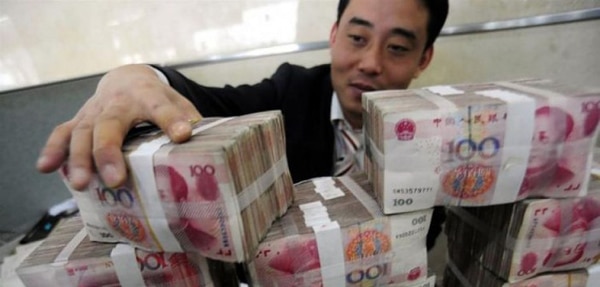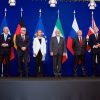
China has launched an Asian Infrastructure Investment Bank (AIIB), a good initiative in a region that in the coming years will require large, actually huge, transport systems and other public works. But the move has driven a further wedge between the US and Europe, at a time when they are negotiating the TTIP, the important Transatlantic Trade and Investment Partnership. Much of the responsibility lies with the US Congress, dominated by the Republicans, who refuse to ratify the change in the distribution of votes in the IMF to reflect the greater importance of emerging economies, particularly China. The reform was urged five years ago by the G-20 but has been paralysed on Capitol Hill. So, is this the way the superpower is managing the unstoppable changes going on in the world? Obama is trying to gain special powers from the outgoing Congress to close trade negotiations and ratify the reform of the IMF. But it may be too late. China and many other countries are now onto something else.
Beijing launched the AIIB project last October and it has now decided to make it materialise with a capital of US$50 billion (€46 billion, which could be doubled). That may not be much but it is an important step (for purposes of comparison, the World Bank has a capital of US$223,000 million and is suffocating under the demands for funding it receives). More than 27 other Asian countries have joined the project. Japan, which leads the Asian Development Bank, is the regional power most reluctant to join. Only 25% is reserved for countries outside the region. China contributes most and its headquarters will be in Beijing, although its staff will be international. The US objects that that the bank’s operations will not be clear and that neither will it support or respect environmental and social standards. But how many countries controlled by dictators have not been funded by the World Bank?
This is a further initiative in the string of measures being adopted by Beijing, supported by other emerging powers, to challenge the Western-dominated Bretton Woods system that emerged from World War II. The BRICS, again including China, have also launched their own New Development Bank. The world is changing and China wants it to conform more to its interests and needs new institutions. ‘It will not stop just because the US can no longer engage’, as Martin Wolf has written.
The Obama Administration, which has left China out of the Trans-Pacific Partnership (TPP), urged the Europeans, and particularly the UK, not to join the Asian bank project. Nevertheless, despite the special relationship, David Cameron was the first to ignore his American cousins’ wishes and the first European to be an AIIB founder member. France, Germany and Italy, in a more coordinated way, joined later. Thus, it will include all of Europe’s G-7 members plus another major US ally, Australia. Spain, which China often refers to as its best ally in Europe, has also applied to enter as a founder member. The deadline was 31 March.
The whole process has been a typical example of how poorly the EU functions when faced by offers of this kind and when national economic interests are at stake: its Member States abandon their commitment to consult between themselves on important foreign affairs initiatives. European governments have raced head over heels to get to Beijing: the British aim to make the City of London a financial centre for the Chinese renminbi; Berlin has long been coveting a special relation with Beijing; France is seeking contracts; and Spain is after investments and markets. China is a magnet for Europeans, who are scrambling over its evident attractions. There is no European strategy towards China and the Chinese government is well aware of the fact.
It was the Western economies that wanted China to invest part of its trade surplus and capital in foreign currency (US$3.8 trillion) in infrastructures in Asia but Beijing has extended its operations far beyond the region, to Africa and Latin America, without the westerners knowing very well how to deal with them. China is developing significant expertise in infrastructures and has spent 8.5% of its GDP on them domestically between 1992 and 2011. The corresponding figure for federal expenditure in the US is barely 0.06%. Lawrence Summers alerted us to the fact some time ago.
The AIIB provides a further glimpse of the coming world. It makes one wonder what is happening: is the West no longer a reality? Is there actually a Europe when it comes to standing up to China?


